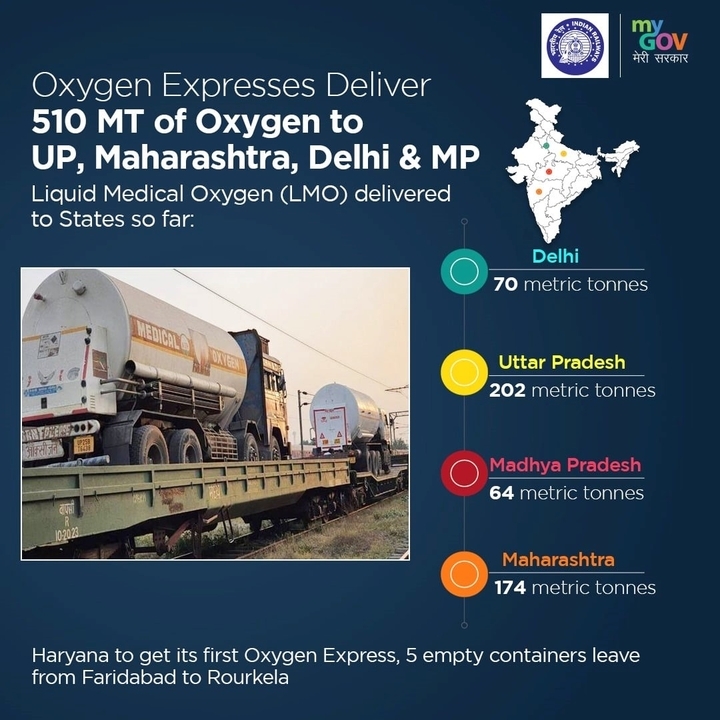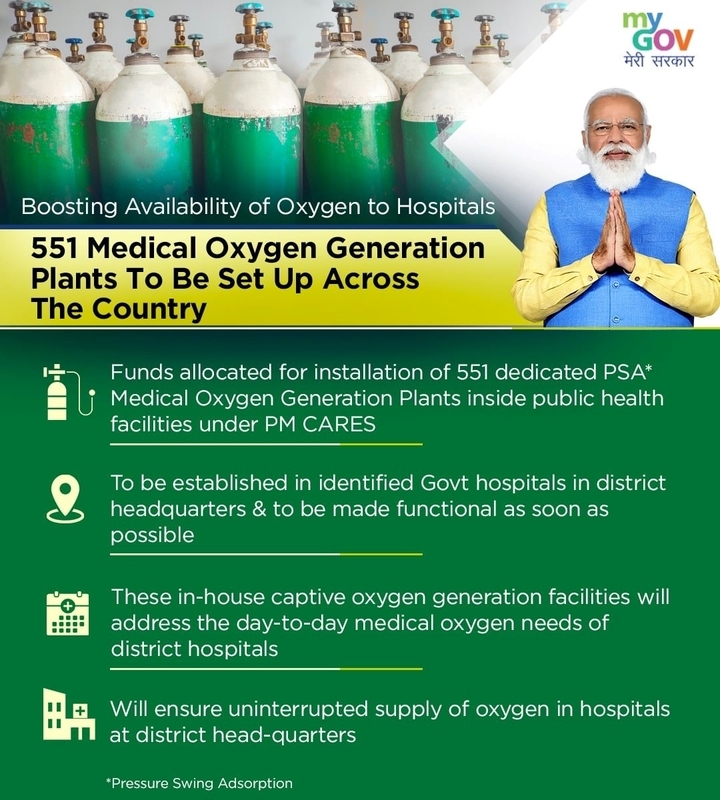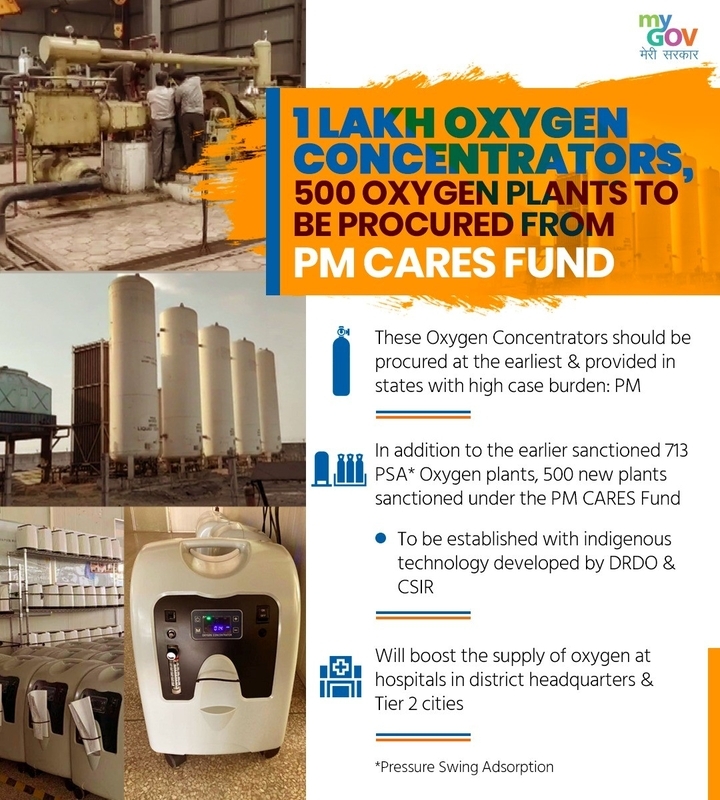Need For Rapid Upgradation Of Health Infrastructure Under Covid-19
Context
Prime Minister Narendra Modi on Tuesday chaired a meeting with top officials to take stock of the situation of oxygen availability, medicines, health infrastructure etc in the country amidst covid-19 pandemic.
The prime minister instructed the officials to work closely with state governments to start the PSA Oxygen plants at the earliest.
Outcomes of the meeting
- He took stock of the availability of essential medical supplies like oxygen medicines and also other medical equipment needed urgently in the wake of rapidly rising number of covet cases.
- The three empowered groups formed to address these issues briefed the Prime Minister on the steps that are being undertaken to meet the current crisis.
- The empowered group on oxygen informed the Prime Minister about the members being taken to step up the allocation of oxygen to the respective states and this group said the production of medical oxygen in the country has increased to 8 922 metric tons from 5 700 metric tons in august last year.
- The empowered group working on medical infrastructure and management mentioned about the efforts that are being undertaken to boost the availability of beds and ICU's as people struggle with an acute shortage of hospital beds currently. They informed the PM on efforts being break the chain of transmission. PM stressed on the need to ensure that specific guidelines and strategies evolved regarding Covid management needs to be properly implemented by the relevant agencies in the States.
- He also stressed on the need to ensure that specific guidelines and strategies evolved regarding the poverty management need to be properly implemented by the relevant agencies.
- The Empowered Group working on communication informed the PM on the efforts being undertaken to improve awareness among people on Covid-related behaviour
COVID 19 threatening our public health system
- COVID 19 is causing huge challenge to Indian health care system.
- Hospitals in major states like Delhi and Maharashtra have run out of beds, medicines, oxygen and ventilators.
- There are multipole reports of rampant black marketing of covid related drugs and supplies- remdesivir for 30 thousand rupees and oxygen cylinder for 50 thousand.
- India is witnessing a daily death toll of 3600, though many experts say that deaths are being underreported right now, the number could be 10000 daily.
- OPDs and other departments of various hospitals are almost non functional due to non-availability of doctors.
- Exorbitant rates in private hospitals, lack of facilities in govt hospitals and lack of qualified doctors, especially in rural India has wreaked havoc on the health care system.
- Global media has termed this situation as very disheartening.
What needs to be done
- Increase the expenditure on healthcare to 2.5% of the GDP as the National health policy stated.
- Move away from insurance driven model to focus more on creation of public hospitals as that may help the poor people more.
- Vaccination should be free to tackle this virus.
- Effective action against hoarders of essential medicines and oxygen must be taken to ease the crisis.
- Government must focus on a decentralized model of healthcare to focus on undeveloped areas.
- More special covid-only facilities must be created to cater to the burgeoning numbers of patients.
- In the long term, focus must shift to producing more doctors, nurses, development of indigenous medicines and adequate funding.
Steps taken by the government recently


Other steps taken by India to tackle this emergency
- India has floated a global tender for procuring 50,000 tonnes of oxygen.
- The first imports would be coming from Singapore, China and the Gulf countries since they are the nearest geographically, the official added.
- The immediate concern, however, is the availability of empty cryogenic tankers, especially for imports from China. These tankers, which maintain a temperature of minus 183 degree Celsius, would be transported by sea to India.
- Union government has stepped in to prevent states from hindering the movement of liquid medical oxygen (LMO) to other states.
- Additionally, the Indian Air Force (IAF) airlifted empty oxygen tankers and took them to industrial units that have switched to producing medical grade oxygen.
- As against the current demand of 6,785 tonnes per day (tpa) of LMO from 20 states, the Centre has allocated 6,822 tpa as of April 21, according to a government press release issued after the meeting.
- In the last few days, the availability of LMO has increased by about 3,300 tpa, with contributions from private and public steel plants, oxygen manufacturers, other industries, as well as by prohibiting the supply of oxygen to non-essential industry.
- To speed up oxygen delivery, trains have also been pressed into service to ferry tankers. On April 23, the first rake from Visakhapatnam travelled with 105 MT LMO to Nagpur, offloaded three tankers, and sped to Nashik to supply four tankers on Saturday.
- A similar movement of tankers took place from Bokaro in Jharkhand to Uttar Pradesh.
- A 270km Lucknow to Varanasi 'green corridor', where trains carrying oxygen tankers have first right of way, was created earlier.
Conclusion
- India needs a holistic approach to tackle problem of his coronavirus pandemic. This includes the active collaboration of all stakeholders public, private sectors, and individuals. A more dynamic and pro-active approach is needed to handle the dual disease burden.












0 Comments